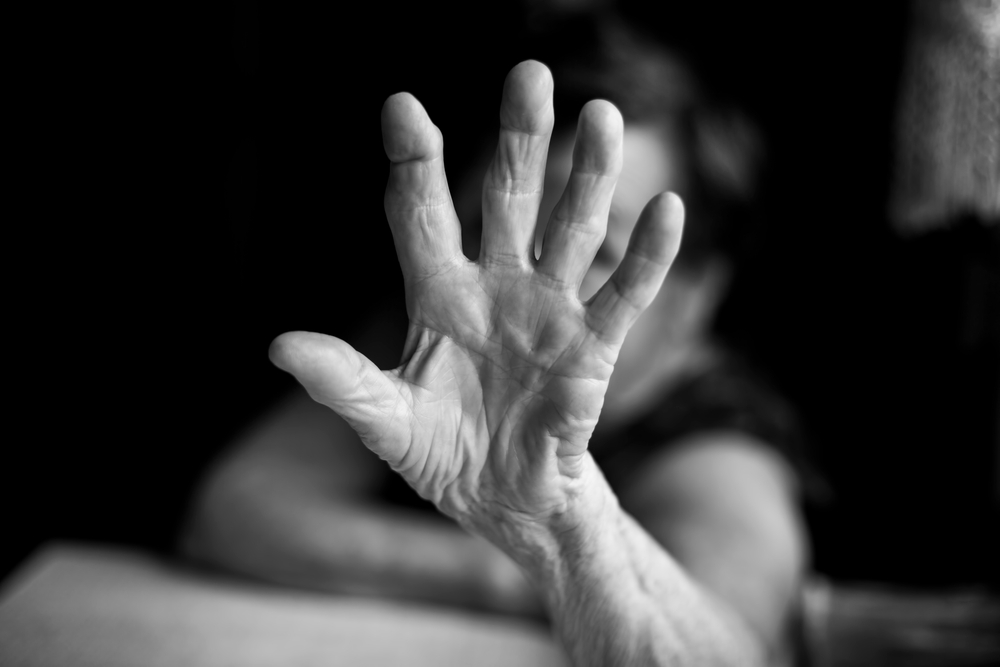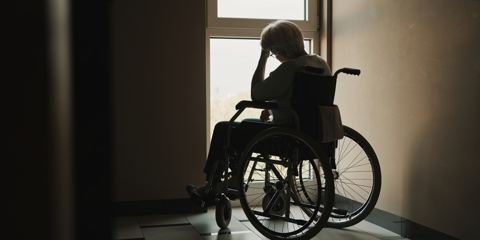When people think of an epidemic, they may think of a rapidly spreading disease or perhaps a societal issue like drug abuse. There is another epidemic that people need to think about: elder abuse.
Elder abuse can happen in many forms. It is not just hitting, slapping, or kicking an elderly person. It can also be psychological in nature, involving emotional abuse. In short, emotional elder abuse is caused by the use of mean words. It happens when an older person is yelled at, harassed, threatened, or belittled. While it doesn't leave physical marks, it can be emotionally devastating to the victim. Their well-being is negatively affected, potentially causing anxiety, depression, and even post-traumatic stress disorder (PTSD).
Emotional abuse among the elderly involves the infliction of anguish, pain, or distress primarily through verbal acts. However, nonverbal abuse can fall under this category. This primarily occurs by posting videos of elderly people in humiliating situations, such as being naked or on the toilet.
Emotional abuse is actually quite common. More than 30% of nursing home staff members have admitted to psychologically abusing residents. In 2022, psychological abuse made up 16% of complaints in nursing facilities and residential care communities.
Emotional elder abuse involves controlling the elderly person’s freedom in an attempt to create feelings of isolation, low self-esteem, and emotional pain. This type of abuse can have a severe negative impact on the mental health of the elderly.
Types of emotional elder abuse may include:
Verbal harassment. This includes yelling at an elderly person, bullying them, or belittling them in any way.
Psychological torment. This is when a person manipulates an elder by threatening them or blaming them for things they did not do.
Isolation. This means isolating the elder from friends, family, or social occasions. This can lead to increased loneliness and depression.
Examples include:
Being mean.
Intimidating.
Yelling, screaming, or swearing.
Blaming the elderly person for things beyond their control.
Causing guilt or shame.
Embarrassing the person when others are around.
Insulting, ridiculing, or name-calling.
Talking to the elderly person in a childish manner.
Threatening to harm the person.
Signs of Emotional Abuse
There are several signs that may indicate that an elderly person is experiencing emotional abuse. They include the following:
Behavior changes. This includes unusual behavior, such as rocking, biting, or sucking. They may also be extremely withdrawn, non-communicative, or non-responsive.
Mental state. They may feel helpless, hopeless, guilty, or inadequate. They may also experience depression, anxiety, or fear.
Reluctance to talk. The victim may be hesitant to talk freely or openly. They may also avoid eye contact with a specific person.
Confusion. The person may experience confusion or disorientation that is unrelated to any health problems.
Isolation: They may isolate themselves from others or withdraw from family and friends.
Anger: They may experience anger without apparent cause.
Sudden changes. They may experience sudden changes in sleeping or eating patterns.
What to Do if Your Loved One is a Victim
If your elderly loved one is a victim of emotional abuse, take the following steps:
Document the abuse. Keep a record of incidents, including dates, descriptions of what happened, and witnesses, if any. Take photos or videos if there are visible signs of neglect or abuse-related consequences.
Talk to your loved one. Approach them gently and in a safe space. Express your concern and let them know they are not alone. Ask open-ended questions to understand their perspective and feelings.
Provide emotional support. Reassure your loved one that you believe them and that the abuse is not their fault. Be patient and allow them to share at their own pace.
Involve professionals. Report the abuse to Adult Protective Services (APS) in your area. APS investigates reports of elder abuse and can provide support services. Contact law enforcement if there is immediate danger. You can also reach out to a social worker or therapist.
Create a safety plan. Work with your loved one to develop a plan for their safety, which may include identifying safe spaces, trusted individuals, and emergency contacts. If necessary, explore alternative living arrangements to remove them from the abusive environment.
Seeking Legal Action
You may wonder if you can sue for emotional abuse of your elderly loved one. You should know that, yes, you can sue for emotional abuse of an elderly person if there is sufficient evidence that the abuse occurred and caused harm. Emotional abuse of the elderly is considered a form of elder abuse and can be addressed through both civil and criminal legal actions.
Speak with an attorney specializing in elder law or personal injury. They can help determine the strength of the case and guide you through the legal process. They can help you pursue legal remedies, such as restraining orders, guardianship, or financial restitution. You can also report the abuse to APS. The agency can initiate an investigation and provide evidence if the case goes to court.
You may sue for emotional distress, pain and suffering, or other damages caused by the abuse. Claims may also involve negligence or intentional infliction of emotional distress. However, you will need sufficient evidence to prove your case. This includes medical records, witness testimonies, documentation of abuse, or expert testimony from mental health professionals.
If the abuse involves criminal behavior (threats, coercion, harassment), law enforcement can investigate, and the perpetrator may face criminal charges. Criminal cases can run parallel to civil lawsuits.
Contact Newman Law Group Today
Not too many people think about emotional abuse in elders, but when it happens to your loved one, it can be heartbreaking. While it does not cause physical harm, it can be psychologically damaging in many ways.
At Newman Law Group, LLP, we understand that words can hurt a person, especially a vulnerable elderly person. If your loved one has been affected by emotional abuse, contact us today, and we will help you fight for justice and compensation. Schedule a consultation by calling (916) 352-3181 or filling out the online form.





